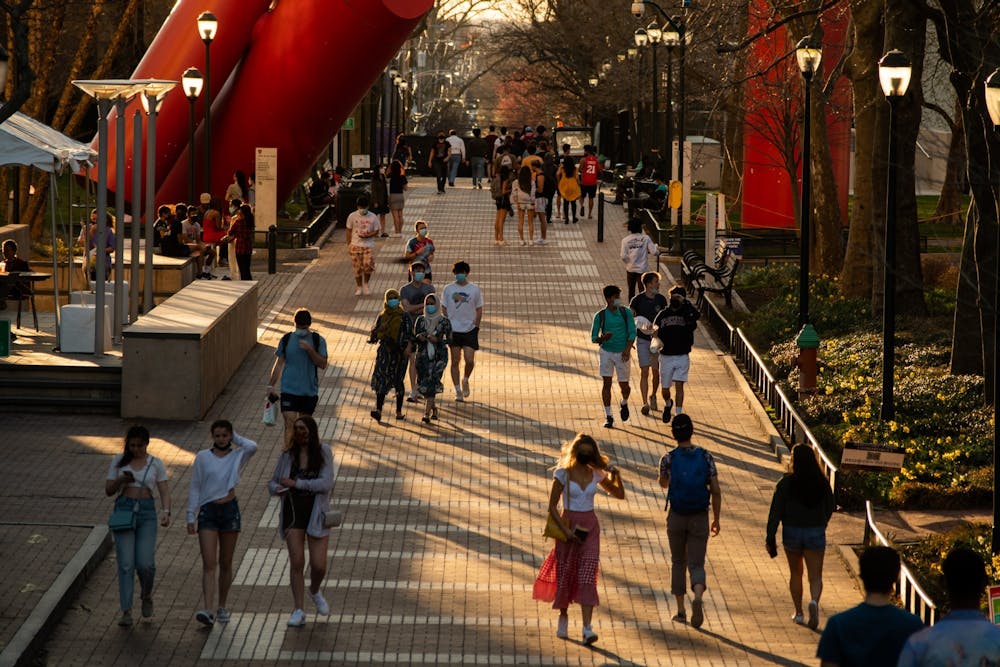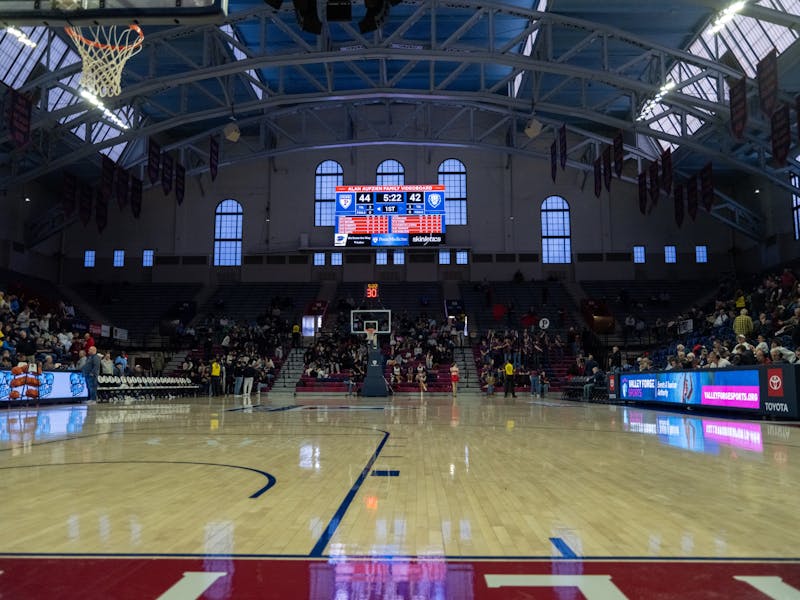
In a message to the Penn community, the university announced new COVID-19 health and safety guidelines as part of its efforts to transition to a “more normal on-campus experience” for the upcoming in-person fall semester.
Credit: Max MesterPenn will be easing restrictions on travel and campus activities this summer, while continuing its testing protocol of students and faculty.
In an email sent to the Penn community on May 19, University administrators announced new guidelines for students, faculty, staff and postdocs living on and off campus this summer. The updated guidelines remove restrictions on Penn-affiliated travel, allow departments to host visitors on campus, and permit the use of on-campus spaces. The new guidelines were driven by “continued positive progress” regarding COVID-19 in the community, according to the email, and are part of Penn’s efforts to transition to a “more normal on-campus experience” for the upcoming in-person fall semester.
Under the new guidelines, Penn will be lifting its travel suspension and imposing restricted travel guidelines for all domestic and international Penn-affiliated travel. Penn-affiliated group travel will be permitted starting July 1. Faculty, staff, and students who wish to travel must be fully vaccinated unless they have a medical or religious exemption, and can travel domestically or to countries rated CDC level 1 and 2 without a petition.
Inbound travel to Penn is not considered Penn-affiliated travel, the email read, and will continue to be governed by city, state, and federal guidelines. The University will, however, allow schools, centers and departments to host scholars and visitors to campus in accordance with social distancing guidelines. Visitors must comply with Penn health guidelines and will be required to participate in PennOpen Pass.
According to the email, the University will not be creating centralized guidelines for the use of general spaces, room occupancy, and outdoor activities, but schools and departments can choose to develop their own policies to facilitate compliance with city and state health guidelines. Penn office spaces, museums, and performance spaces will, however, be subject to Philadelphia city guidelines regarding capacity restrictions. Philadelphia Mayor Jim Kenney announced on May 11 that the City will drop all capacity restrictions on businesses and activities starting on June 11. Penn departments should “assume no restrictions on density” when designing their reopening plans for the fall semester, the email read.
Undergraduate students already enrolled in COVID-19 screening should continue their twice-weekly testing protocol if they are living on or off campus, according to the email, and students who are arriving to campus this summer must schedule a test within their first week of arrival. Graduate students who are living off-campus are only required to be tested once per week, and those living in college housing must be tested twice weekly.
Faculty, staff, and postdoctoral students are required to be tested twice per week if they are living on campus. Those who are on campus for four or more hours per week during Summer Session I will be required to be tested once per week.
Penn also announced that the Student Campus Compact, which includes masking and social distancing requirements, will be updated this fall to reflect new expectations for students. While the University will require students to be fully vaccinated prior to arriving on campus, students who are unable to access the vaccine in their home locations can do so through Student Health Services.
Acceptable vaccinations include Pfizer-BioNTech, Moderna, and Johnson & Johnson/Janssen, as well as AstraZeneca and Covishield, the email read.
The University has not announced whether it will require faculty, postdocs, and staff to receive the COVID-19 vaccine. According to the email, Penn is “reviewing” this option and will provide further information later in the summer.
Penn administrators wrote that they are optimistic about the “path to a more traditional campus experience,” citing vaccine availability and falling transmission rates. For the final two weeks of the semester, Penn’s undergraduate COVID-19 case count was a combined total of 13 cases, yielding a positivity rate well under 1%.
The Daily Pennsylvanian is an independent, student-run newspaper. Please consider making a donation to support the coverage that shapes the University. Your generosity ensures a future of strong journalism at Penn.
Donate







